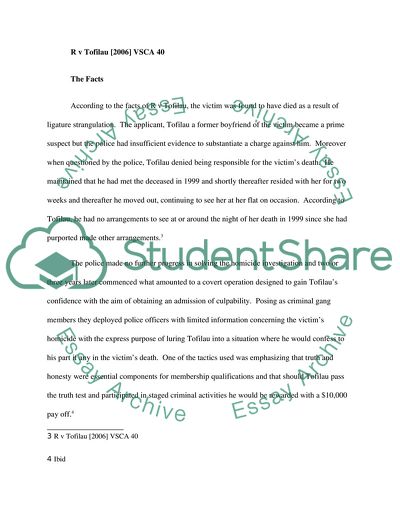Cite this document
(“Evidence Law - Victoria (Australia) Legal Case Commentary Essay”, n.d.)
Evidence Law - Victoria (Australia) Legal Case Commentary Essay. Retrieved from https://studentshare.org/law/1539792-evidence-law-victoria-australia-legal-case-commentary
Evidence Law - Victoria (Australia) Legal Case Commentary Essay. Retrieved from https://studentshare.org/law/1539792-evidence-law-victoria-australia-legal-case-commentary
(Evidence Law - Victoria (Australia) Legal Case Commentary Essay)
Evidence Law - Victoria (Australia) Legal Case Commentary Essay. https://studentshare.org/law/1539792-evidence-law-victoria-australia-legal-case-commentary.
Evidence Law - Victoria (Australia) Legal Case Commentary Essay. https://studentshare.org/law/1539792-evidence-law-victoria-australia-legal-case-commentary.
“Evidence Law - Victoria (Australia) Legal Case Commentary Essay”, n.d. https://studentshare.org/law/1539792-evidence-law-victoria-australia-legal-case-commentary.


